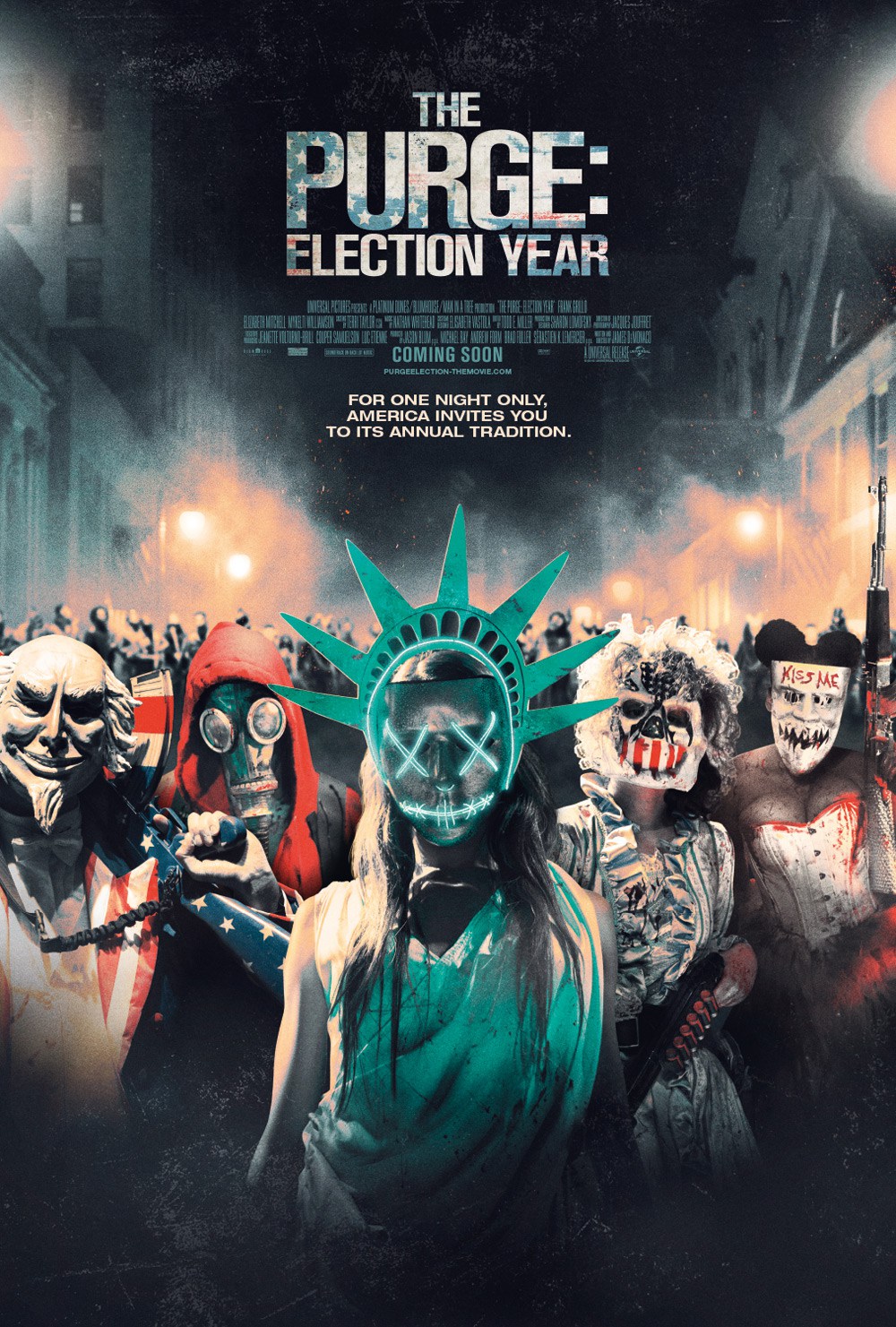As the third installment in the dystopian thriller/horror Purge series, you would expect Election Year to bring something new to the formula that was radical enough to turn heads. While the filmmakers did attempt this, the execution was poor and made little real effort to shake anything up.
The first thing that came to mind when I heard about this movie was how genius it was to make it on a literal election year. There would certainly be no end of references to the messy political state of affairs presently facing Americans, and we would hopefully get at least a simulacrum of Trump and Hillary bloodily duking it out tooth and nail to see who takes the office as our new commander-in-chief.
Sadly, this was not the route director and writer James DeMonaco decided to take.
In The Purge: Election Year, like its two predecessors, the action centers around one night, dubbed “the Purge”, where for twelve hours, all crime is legal and emergency services such as the police, the fire department, and hospitals are unavailable.
“The execution was poor and made little real effort to shake anything up.”
This results in death gangs roaming the streets, buildings being destroyed or ransacked, and general chaos.
While the first movie focused on one family and the defense of their home, and the second followed three narratives that eventually intertwined, this one decided to focus on two main groups, one of which includes (can you guess?) a presidential candidate. The party in power, the New Founding Fathers of America (NFFA) have a bigoted, Purge-loving candidate running against newcomer Senator Charlie Roan, who wants to do away with the violent holiday. This inevitably leads to an easy to predict plot in which the NFFA tries to kill Roan, employing a team of hatefully clad Neo-Nazis to do the dirty work.
The second group consists of convenience store owner Joe Dixon, his clerk Marcos, and a patron and apparent Purge veteran, Laney Rucker. They end up defending Joe’s store from a group of psycho, over-the-top girls with guns and saws who were horrendously offended when two of their members were tragically caught stealing candy (yes, candy) from Joe earlier.
Charlie, with the help of her head of security Leo Barnes, played by Frank Grillo (best known for his role as Crossbones in Captain America: Winter Soldier and Civil War), was able to evade the Neo-Nazis long enough to be caught by “murder-tourist” Russians, who are then quickly killed off by hand-guns akimbo Joe and his apprentice/son figure Marcos. This motley group continues on to meet the underground anti-Purge resistance movement, and eventually square off with the NFFA by the end for a closer involving several false-finishes and not so surprising shocks.
Overall, the movie has its fair share of plot holes and un-answered questions (how does anything get accomplished if anyone at all could get killed from one year to the next?), and also suffered from unconvincing, over-the-top acting from characters such as the psycho girls, the Russian visitors, and even Joe in his fits of Matrix-level gun firing.
These problems plagued the previous two entries of the Purge triology, but like a good chunk of Hollywood today, DeMonaco likely listened more to the box office numbers more than the critics. It felt like more effort was put more into the marketing than the actual product.
Even if the acting was a little questionable, and the Purge concept could be fleshed out a little more, it is still an all right movie if you are interested in it for the action and visualization of an interesting idea. If you want a commentary on America’s current political situation, however, look elsewhere.
While the film did leave the door open for yet another sequel to follow, James DeMonacoso has had three chances to make this violent dystopian world work, and only one was arguably decent. Unless he steps up his game, this franchise should be purged itself.
